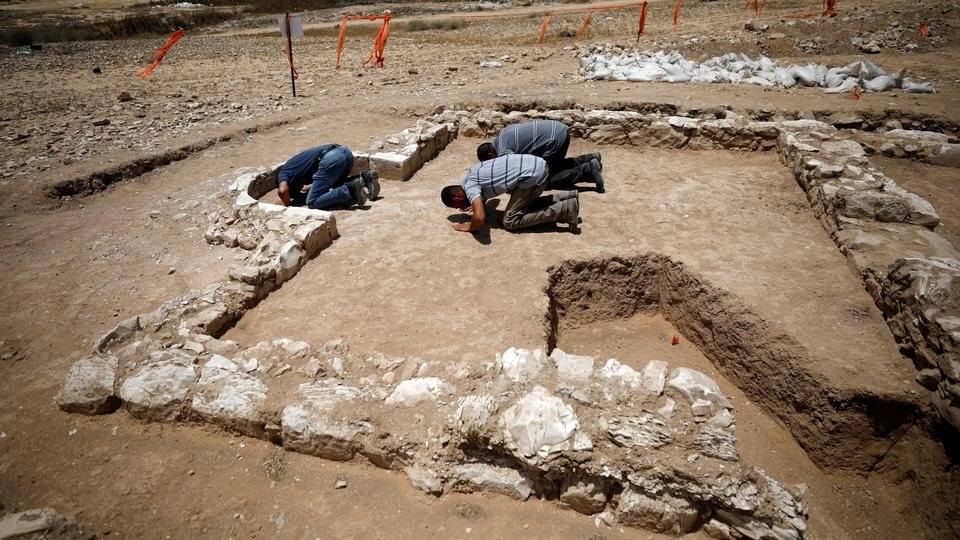Archaeologists in Israel said they have discovered the remains of one of the world’s oldest rural mosques in Mandate Palestine, about a thousand years before the creation of Israel.
The Israeli Antiquities Authority yesterday estimated that the mosque, uncovered ahead of new construction in the Bedouin town of Rahat in the An-Naqab (Negev in Hebrew) desert, dates back to the 7th or 8th centuries.
Muslim News investigations revealed that the site of the discovery was formerly under Mandate Palestine before larger parts later became Israel, having been conceded by British representative St John Philby “in Trans-Jordan’s name”.
Recall that in 1948, the violent establishment of Israel led to near-total destruction of Mandate Palestine, with the forceful expulsion of hundreds of thousands of Palestinians from their homeland.

Between 1947 and 1949, at least 750,000 Palestinians from a 1.9 million population were made refugees beyond the borders of Occupied Palestine.
The Isreaeli-Zionist forces had taken more than 78 percent of historic Palestine, including the site of the discovery, ethnically cleansed and destroyed about 530 villages and cities, and killed about 15,000 Palestinians in a series of mass atrocities, including more than 70 massacres.
There are large mosques known to be from that period in Jerusalem and in Makkah but it is rare to find a house of prayer so ancient whose congregation is likely to have been local farmers, the antiquities authority said.
Excavated at the site were the remains of an open-air mosque — a rectangular building, about the size of a single-car garage, with a prayer niche facing south towards Makkah.
“This is one of the earliest mosques known from the beginning of the arrival of Islam in Israel, after the Arab conquest of 636 C.E.,” said Gideon Avni of the antiquities authority.
“The discovery of the village and the mosque in its vicinity are a significant contribution to the study of the history of the country during this turbulent period.”


